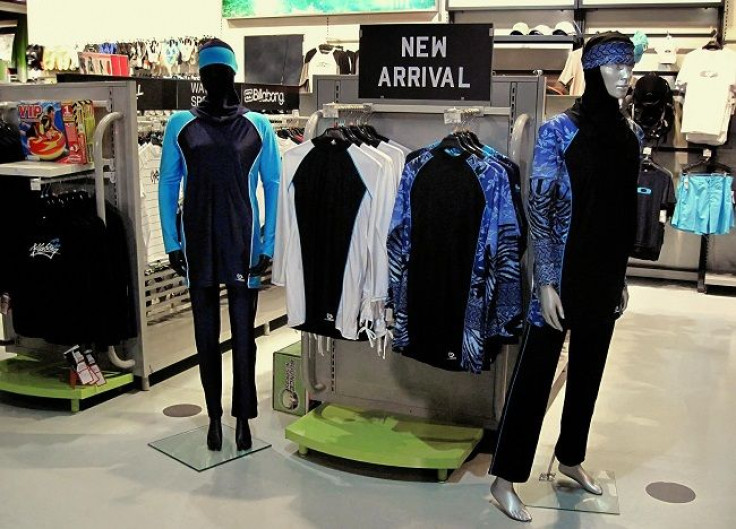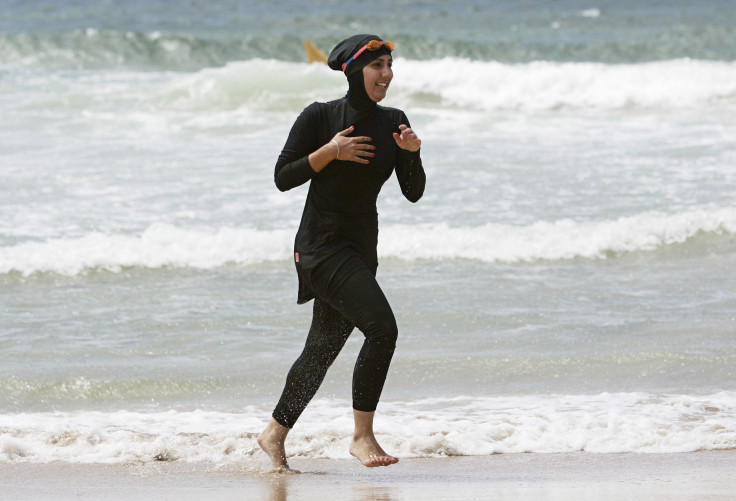What Is A Burkini? Facts To Explain France's Ban On Bathing Suit

The burkini has been popping up all over the internet, thanks to France’s recent bans against the swimsuits from some local beaches. A combination of “bikini” and “burqa,” burkinis were designed to cater to strict modesty dress codes that are typically adhered to by Muslim women.
The full-body swimsuits, which could be likened to wetsuits with a hood, cover all parts of the body except for the feet, hands and face and are somewhat form-fitting yet loose enough to still swim in.
They originally made headlines when non-Muslim journalist Nigella Lawson wore one to Australia’s Bondi Beach back in 2011. At the time, a spokesperson for Lawson explained that she wore the garb for sun protection, telling the Telegraph that “Nigella was protecting herself from sunburn, nothing more than that.”

The swimwear also attracted attention when, in a bid to appeal to a wider audience, British mega retailer Marks and Spencer began selling the suits.
The topic of burkinis grabbed headlines again after France began banning the swimwear from some of its beaches this summer. France official prohibition on burqas and niqabs (a full-faced veil) went into effect in 2011. Three years later the European Court of Human Rights upheld the ban, according to CNN.
Over the past year and half, France has been reeling from a string of Islamic Extremist-led terrorist attacks. The most recent one occurred during Bastille Day on July 14 when a Tunisian delivery man, Mohamed Lahouaiej-Bouhlel, drove a truck through a crowd in the city of Nice, killing 84 people. Although no group admitted to carrying out the attack, it was said that the crime “bore the hallmarks of jihadist terrorism,” reported the BBC.
At the beginning of August, a community group in France planned on hosting a “burkini” day in a local water park in Marseille, France. The event’s organizers requested that women be covered from chest to knees for an entire day, which drew a lot of criticism. Originally scheduled to take place in September, the event was eventually canceled.
Following the “burkini-only day” cancelation, select French towns have instituted bans that prohibit burkinis at beaches. Cannes and, most recently, Corsica’s mayors have all instated the bans on beaches.
Mayor David Lisnard of Cannes stated that the burkinis could create “risks of trouble to public order.”
More recently, a large brawl took place on a local Corsican beach, Sisco, where a family of North African descent started to fight with locals, inciting a near riot in the area.
Dozens of people were involved and Sisco Mayor Ange-Pierre Vivoni decided to ban burkinis as result.
© Copyright IBTimes 2024. All rights reserved.












